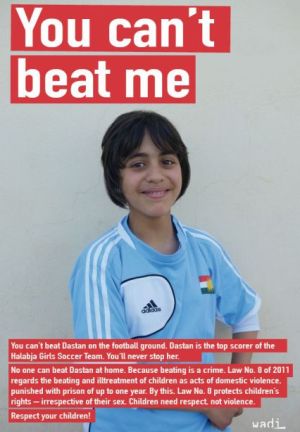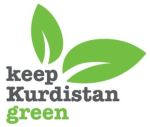WADI promotes self-help programs since 1992 in the Middle East – Israel, Jordan and Iraq. In our projects practical help is combined with monitoring of and lobbying for citizen rights: rehabilitation projects for long-term prisoners, literacy programs, education and training for women, public awareness of and fight against domestic violence as well as campaigns against FGM (Female Genital Mutilation).
Helping people help themselves
 Any effective change is based on self-responsible decisions by the people affected. Long-term development needs not alms but the support of those who strive to improve their living conditions. Democratic rights and opportunities for individuals to decide their own future, are the indispensable condition for development aid not to remain charity.
Any effective change is based on self-responsible decisions by the people affected. Long-term development needs not alms but the support of those who strive to improve their living conditions. Democratic rights and opportunities for individuals to decide their own future, are the indispensable condition for development aid not to remain charity.
Partisan, non-partisan
Fighting underdevelopment, poverty and discrimination needs more than to supply food, to drill wells and distribute seeds. Disaster relief can not be seperated from the question of granting rights and the freedom of the individual to determine his own future. Therefore, development assistance must take party. The supposedly “impartial” help becomes biased in the worst way, where it leaves the social causes of distress untouched and operates within structures that perpetuate injustice and poverty.
Party must be taken on the side of people who were cut off from their right to happiness and a decent life. Development therefore always means interfering in social conditions.
Read more about our activities during the last thirty years in our yearly activity reports.
The programs of WADI take sides – and yet are independent of political parties. Project partners are local initiatives which advocate outside of state and party structures for a concrete improvement of conditions.
In various campaigns WADI is tackling crucial problem in the region.
- Campaign against Female Genital Mutiliation
- No to Violence Campaign for schools
- Environment Protection Campaign
- #Beresponsible campaign against Covid-19
Only democratization boosts prospects
The experience of taking agency and accomplishing change is often an important step towards overcoming the disenfranchisement. This includes not only the protection and respect for individual rights, but the possibility to effectively take a stance for ones own interests.
Excerpt of an interview with Falah Muradkhan and Thomas von der Osten-Sacken about the anti-FGM campaign and WADI’s way of working conducted for the Honor Diaries:
Question: Are there any ongoing challenges that hinder the progress of this campaign?
Thomas: The challenge with the law of course is that it contradicts Shari‘a. The common understanding in Muslim societies is that people carry out the law of God. At the same time, however, these societies are pursuing democracy and the implementation of laws that enshrine democratic values into their legal systems. A law that bans FGM and gives penalty for domestic violence directly contradicts, in this case, the Shafi’i reading of Shari‘a, which condones beating one’s wife and the cutting of women. So the issue of FGM and domestic violence touches upon a core issue of the region – the tension and struggle between secularism and religiosity, and which ideology will prevail.
Taking a step back, this entire battle is being carried out on the bodies of women.
Q: It appears that women’s bodies remain one of the political battlefields in Iraqi Kurdistan.
Thomas: Yes, and this reality extends across the Middle East.
Falah: The other challenge to the law is implementation. The Campaign continues to print out the text of the law and to distribute it widely. We also conduct police awareness seminars, and focus on teachers and encourage them to bring up the issue with children in schools. Through a dedicated network of independent NGOs, the government continues to be held accountable to the law as well.
Thomas: In Kurdistan there is still a challenge to reach all communities, however. In the Clinton State Department, there was a lot of hope because Secretary Clinton devoted resources and attention to the issue, since Kerry’s appointment, this issue doesn’t seem to be top priority any more. But I measure the success of the campaign in its ongoing efforts and the fact that we have been asked by local advocacy groups in Yemen, Oman, and Egypt to bring the Stop FGM campaign to them. In recognition of, and to support the positive, Middle East-wide response to the campaign, we have now launched Stop FGM Middle East.
Nationalist and Islamist ideologies which demand total submission of the individual do not appeal to self-confident people who have learned to take their affairs in their own hands. Without democracy, there are no prospects for a “better” Middle East.
For Wadi and it’s network of partners the ideas of self-ownership, citizenship and participüation are always leading each concrete project and progran they implement.
To continue our work and if possible also to expand
We need your help!







